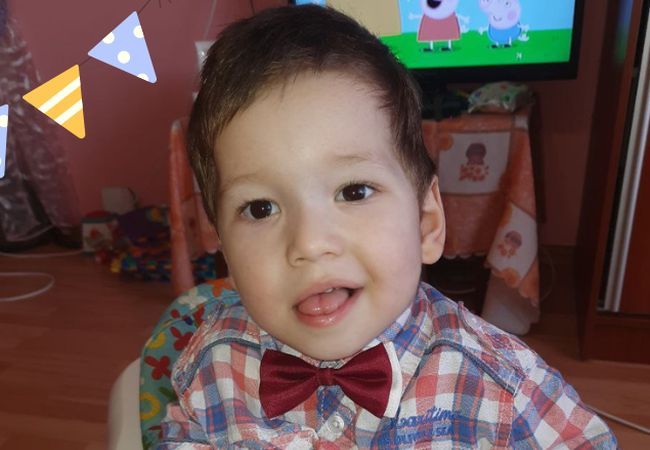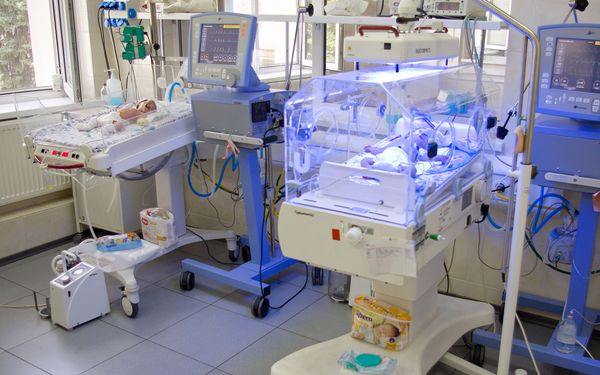It seems that when it comes to foster care, the Zaporozhye region is some kind of a separate state disregarding any national priorities.
On the one hand, the Prime Minister of Ukraine Sergey Tigipko and the Representative of the President of Ukraine for Childrenās Rights Yuriy Pavlenko constantly talk about the necessity to reform the existing orphan care system and transfer to family-type foster care and subdivision of large institutions.
āStage funding should be allocated to each individual child instead of childrenās homesā, - proclaimed the President of Ukraine Viktor Yanukovich at the Conference for Protection of the Rights of the Child held on December 4, 2012.
Nevertheless, recent statements of the regional administrators are more than alarming. At the Conference āZaporozhye Region without Orphansā, the Governor Aleksandr Peklushenko made a statement, which sounded, charitably speaking, weird to the representatives of foster families and family-type foster care centers:
āI do not believe in for-profit motherhood and fatherhood!ā
After that, having spent no more than twenty minutes at the Conference, Aleksandr Peklushenko left to deal with some more important matters. So, unfortunately neither social workers working with foster families nor foster parents themselves got a chance to have a discussion with the Governor on this issue.

December 19, 2012. The Governor Aleksandr Peklushenko with an orphan
Everyone who I talked to had a bad aftertaste. Maybe the Governorās words were just misunderstood, but yetā¦ Such a statement could not but hurt the feelings of 159 foster families and 14 family-type child care centers who receive foster care allowances. Perhaps, the Governor thinks that only those can become foster parents to 5-10 children who are able to support them financially. But for some reason such people are rare to open their homes to foster children. It is surprising that the head of our region takes the liberty to voice his individual opinion insulting dozens of people who devote all their time to solve the problems of orphans and who do it with all their heart.
Recent Governorās statements on St. Nicholas Day are also perplexing:
āI have been raised in childrenās home myself number six. And I am thankful to the teachers and educators who gave me all the best traits I have. Thus, now representing the city authorities, I understand very clearly that we should not destroy this system of institutions existing for those little ones, supporting and developing their work in any possible way,āā said Aleksandr Peklushenko.
According to the Governor, today āthe number of orphans staying in childrenās homes grows not in our region alone, while the number of people who are able to take the responsibility for adopting a child, due to certain circumstances, does not correspond to the dynamics of the growth of children left without parental careā.
Dear Mr. Peklushenko, fortunately today we can say that in the recent years all the regions of Ukraine have seen the decline in the number of orphans living in childrenās homes. Any director of such an institution or any head of a service for children will confirm this fact. So why should anyone make such misleading statements in public?
Perhaps, what was meant was the total number of children in childrenās homes, which is kept high due to the malpractice of enrolling children from low-income families into such institutions. It is not a secret that many institutions worried about the drop in the number of children start promoting themselves among families living in rural areas. Large low-income families, attracted with five meals a day, new plastic windows, and computer science classes equipped with modern computers, sometimes decide to bring their children to those institutions. Notably, such decisions are made not taking into account the opinions of services for children or social workers. As a result, more than half of the children enrolled into childrenās homes are not orphans. And, instead of helping families to overcome their difficulties, as it is done all over the world, our Government spends UAH 5 to 7 thousand (approximately 600 ā 800 US dollars) a month for keeping one child in an institution.
Sure, in our region there are childrenās homes whose administrators make all possible efforts to improve the lives of children, but even in such institutions boys and girls suffer from the negative consequences of the life outside of families.
We are not talking about abrupt closure of all institutions. But there are many options to reform the existing system. Those children who have low chances of being adopted (these are first of all teenage orphans and children with disabilities) would be much better off living in small family-type facilities for 10-20 children than in barrack-like institutions for 150 children. But for some reason until now such facilities in Zaporozhye region have only been created at the initiative of NGOs, while local authorities have not opened a single facility of this type yet.
The millios āraisedā by the Governor and allocated for presents to childrenās homes could have been used to open and fully equip a family-type childcare center for 10 children. That being said, monthly support of children in such a center would cost the state 1.5-2 times less than in an institution. There would be no need to pay salaries to a director, an accountant, cleaners, and so on. Thus, most funds would be spent to cover the needs of children.
We would like to address the Governor: please review the scientific data and the European expertise in reforming the orphan care system, e.g. the presentation below showing the impact of the existing institutional system on mental development of children:
Compare the level of social adaptation of a person coming from a foster family and one coming from an institution. Do we really wish here, in our region, to go on and develop the system which in many cases breaks children and which is being rejected in the whole civilized world? Why the institutional reform is actively implemented in the neighboring Dnepropetrovsk region, and in our region there has been not a single childrenās home reformed or closed?
Wouldnāt it be much better to help a local family ready to care about foster children to open a family-type child care center instead of donating another computer class to an institution?
By the way, we have seen that in some institutions of the Zaporozhye region computers are used ineffectively. Children just play computer games or waste their time in social networks. There is no one to maintain and support computers, not even a teacher of computer science. But when there is an inspection, its members are shown well-equipped computer classesā¦ Why does, for example, this large family with six children have to suffer trying to make both ends meet, still not able to buy a computer for their children, and living in a tiny dormitory room ā though, if they bring their children to an institution, the Government will spend UAH 6,000 (approximately 700 US dollars) for each of them every month?

December 19, 2012. The Governor hands out certificates for computers to directors of childrenās homes. Meanwhile, many institutions are not able to effectively use the computers they own. At the same time, dozens of large families do not have computers
We would like to address Mr. Peklushenko and our regional administration with such requests:
1) To take into account international expertise of de-institutionalization of foster care system and make all the efforts to place orphans into family-type care; it is recommended to build partnership with international organizations dealing with the issues of de-institutionalization, such as Lumos.
2) Arrange cooperation with foster parents and officers responsible for placing orphans into foster families, and abstain from ungrounded statements insulting foster parents.
3) When implementing charitable campaigns, make an in-depth analysis of the existing needs, involving public opinion, with mandatory indication of the source of funding for such campaigns (we consider it inappropriate to say that any presents procured with the use of governmental funding are a donation of some particular government official).
We sincerely hope that Zaporozhye regional authorities are committed to the values of the civil society and that our appeals will be heard.

Will Zaporozhye orphans get to live in loving families or will they have to content themselves with candies for the New Year and the Childrenās Day?


Each of the directors of Zaporozhye childrenās homes is in charge of an institution with a budget of five to twenty-five million hryvnia. Many of them put their heart into what they are doing and do their best to help children. Let us hope that heads of the existing institutions will be able to find ways to reform their institutions for the benefit of children, instead of trying to protect the outdated post-Soviet system.



